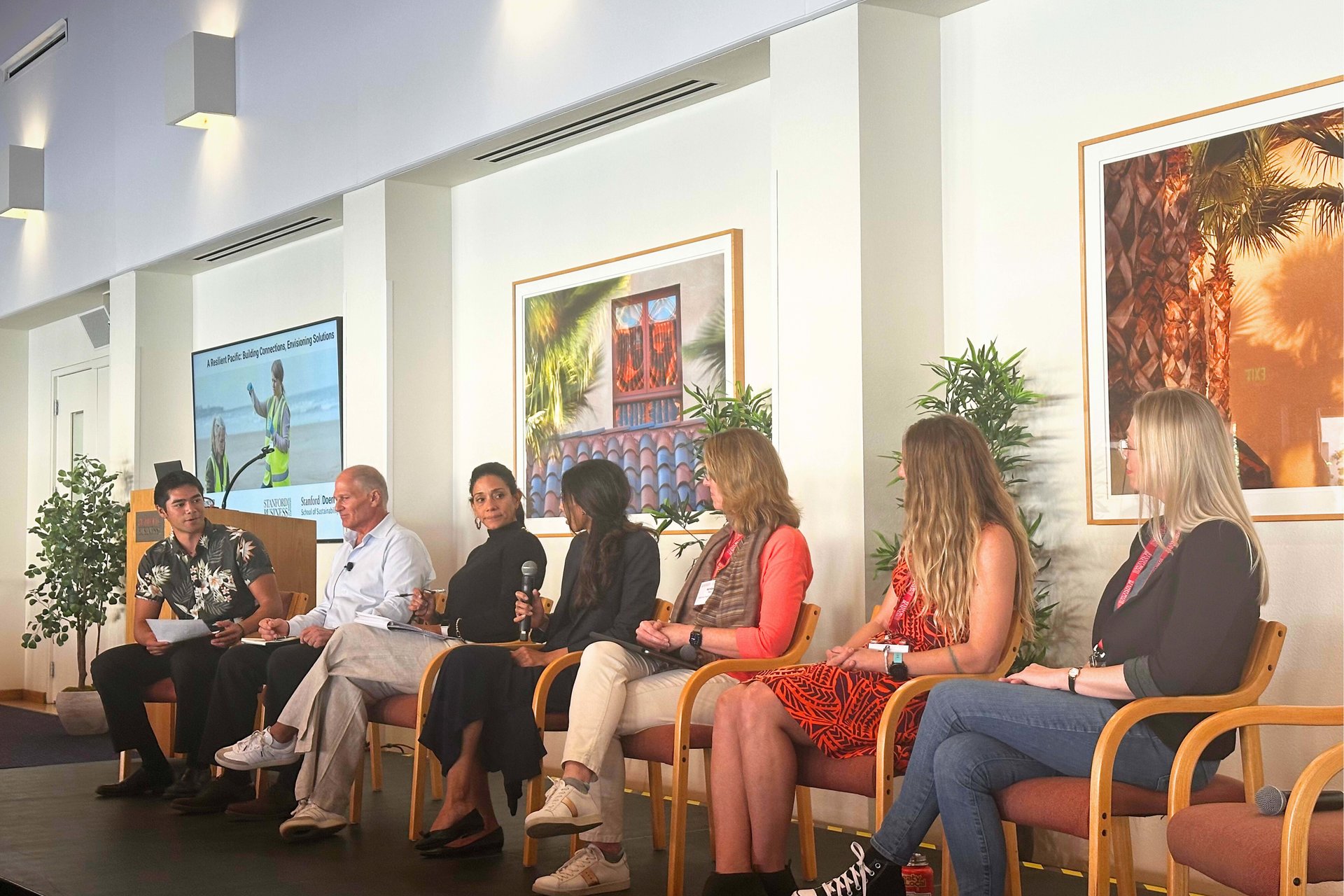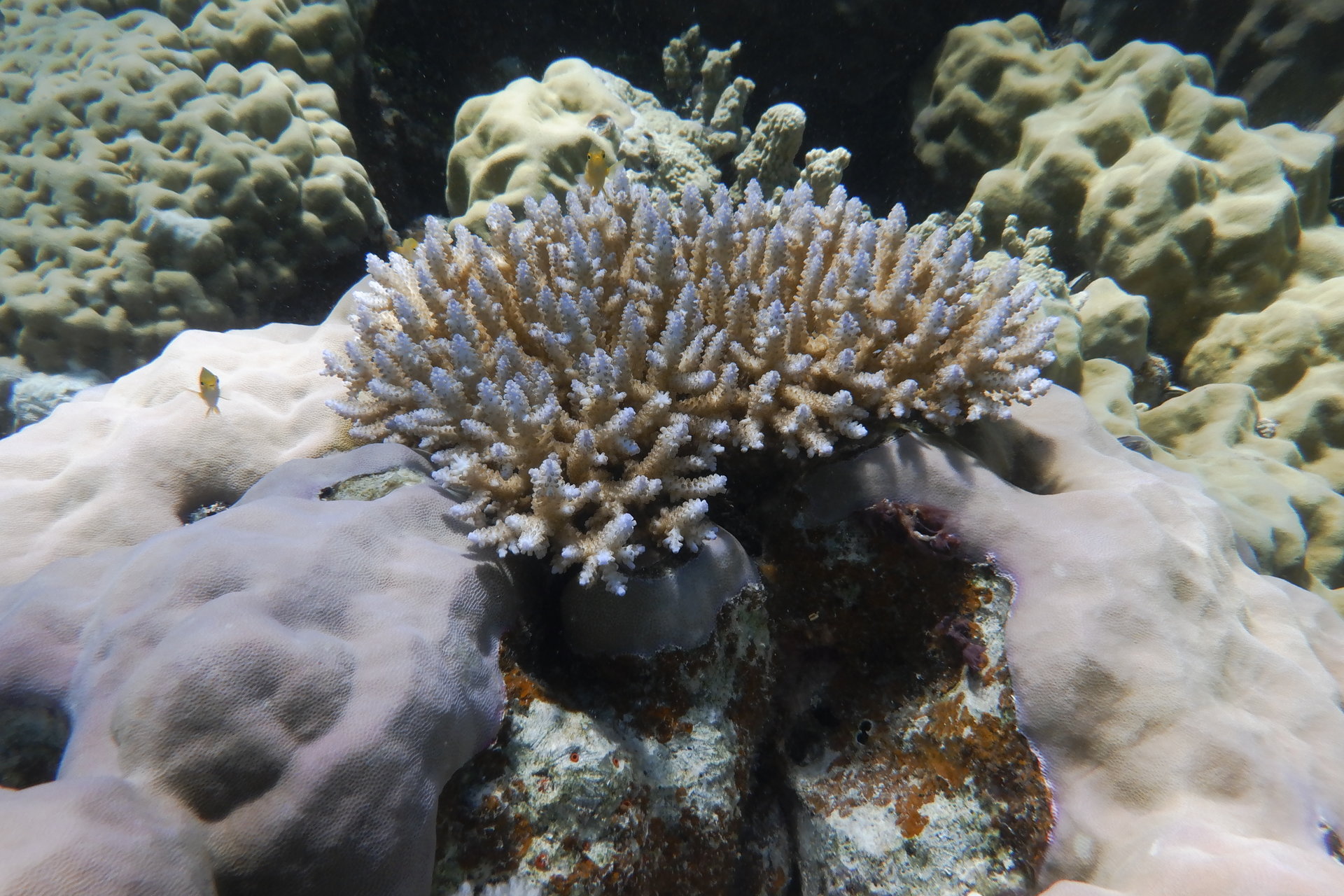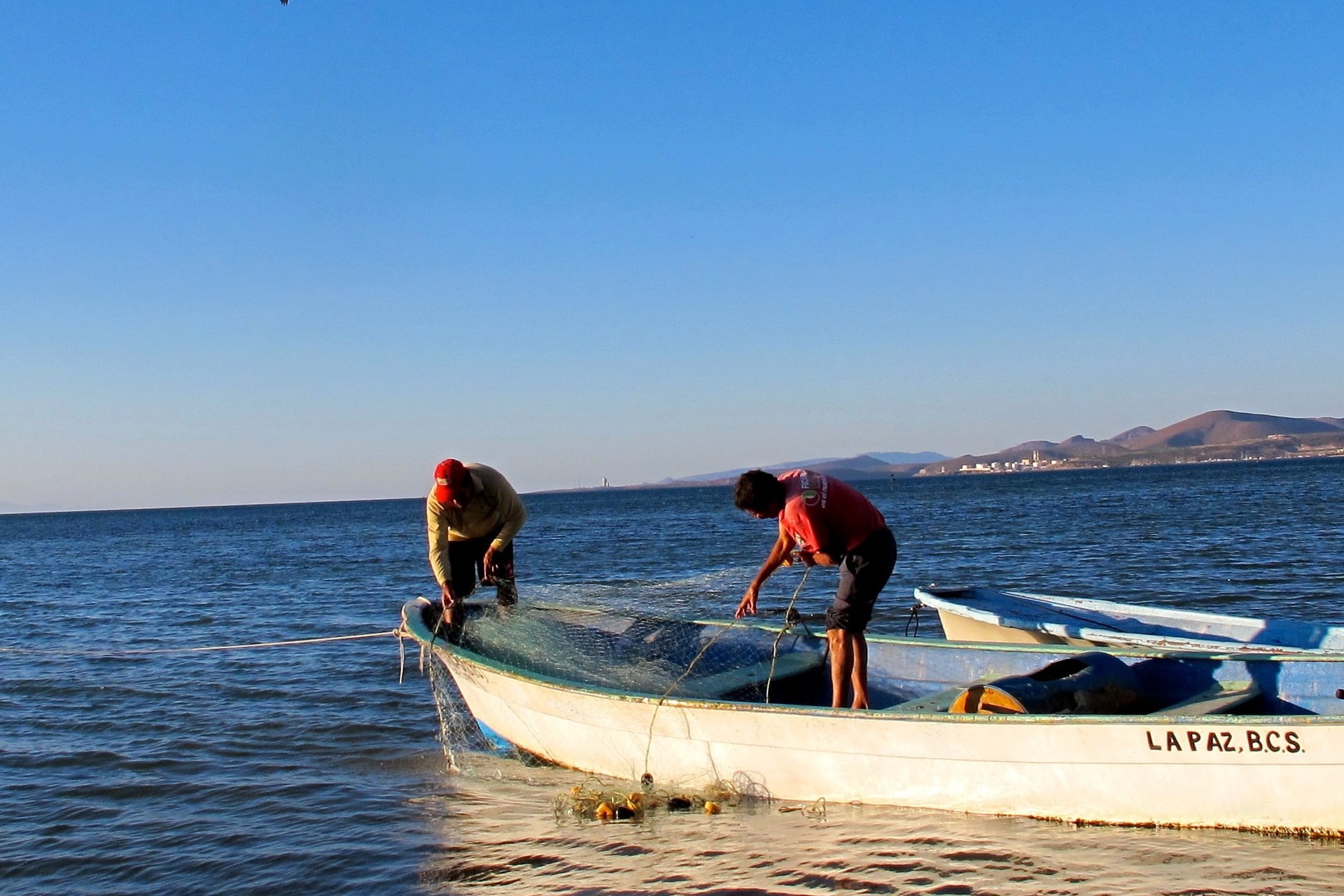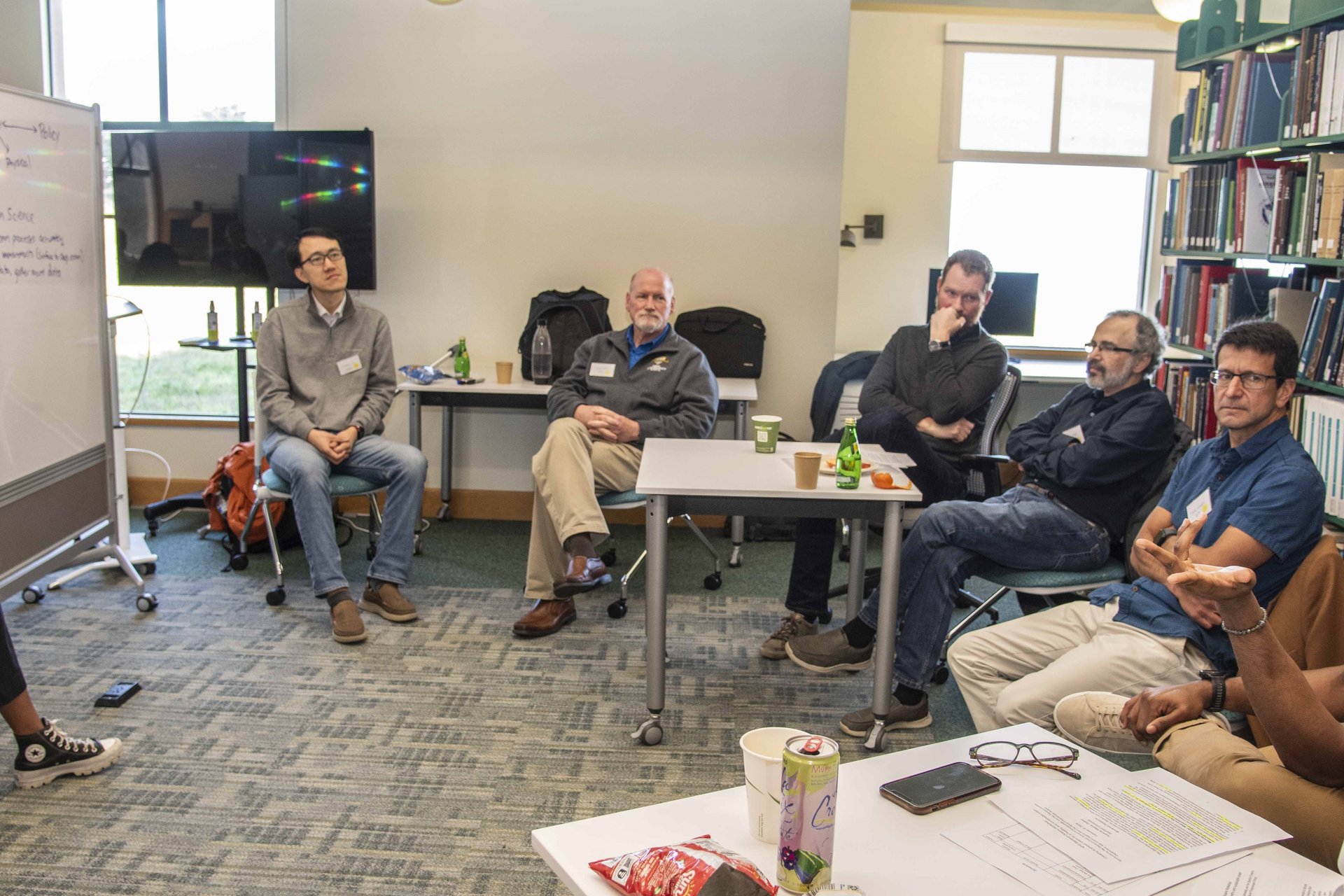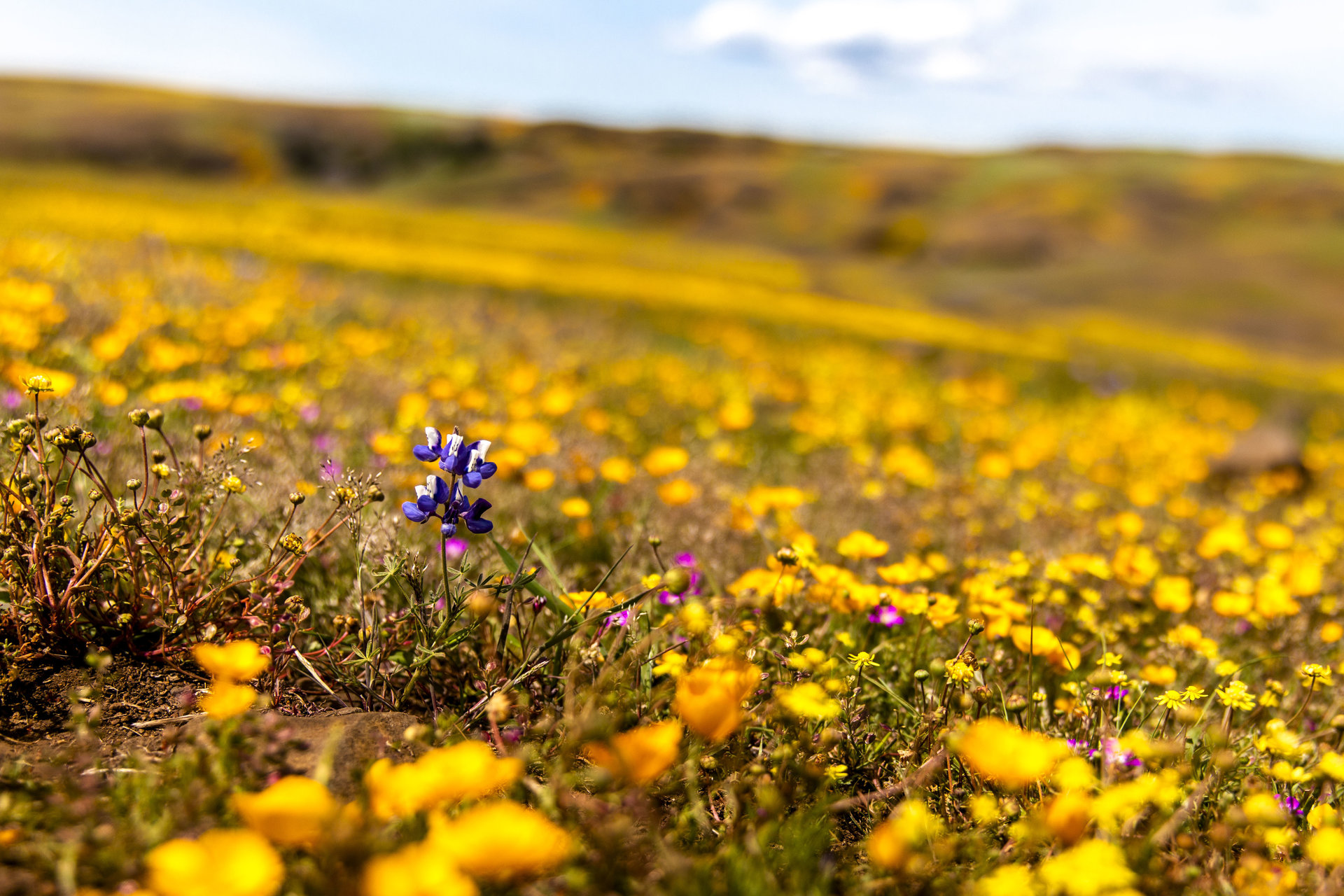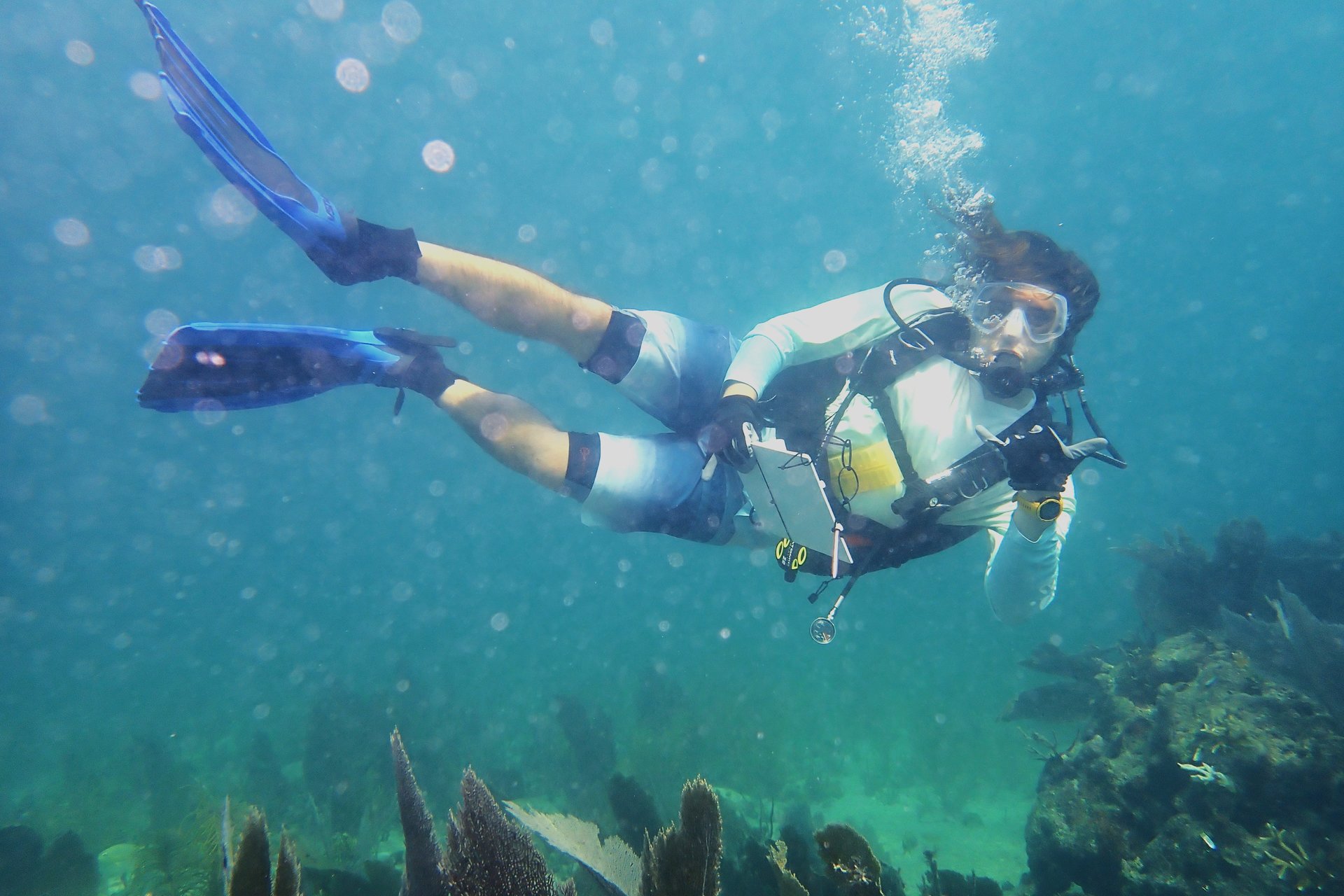Oceans
-
Conventional sunscreen ingredients can damage coral reefs and human health. An immunologist and a marine ecologist teamed up to develop a better approach.
-
With support from a Stanford Doerr School of Sustainability Accelerator seed grant, an interdisciplinary team has developed a groundbreaking optical sensor that measures DNA and other key molecules in seawater using light, potentially revolutionizing the study of biodiversity in the enigmatic depths below the ocean’s surface.
-
To understand trade-offs for coastal communities along the Mesoamerican Reef, new research looks at watershed interventions regionally versus nationally.
-
Attendees of the second Stanford Oceans Conference highlighted the need to incorporate different knowledge systems and move beyond ‘either-or’ approaches to sustainability.
-
Stanford researchers are searching for heat-resistant corals that could ensure the survival of vulnerable reefs.
-
A study of fishing cooperatives and independent operators in Baja California offers lessons for the development of equitable climate adaptation policies across the world.
-
The Stanford Doerr School of Sustainability and the Naval Postgraduate School recently convened experts to discuss how research can address climate change impacts on the ocean environment, economy, and national security.
-
A new report looks back at the most impactful environment and sustainability research from Stanford scholars in 2023.
-
New research shows the major factors that help coral larvae settle and survive are the nearshore current and the physical features of the seafloor. The work could help identify sites where future reefs will be most viable and highlights a need to better protect these coral nurseries.
-
“We can solve the coral reef problem, but scientists can’t play their cards close to the chest. We need to figure out the science and share it. That possibility fills me with optimism.”
-
Analysis of 15 years of data from 55 institutions shows mixed success for recruitment and retention of racially underrepresented groups and women.
-
Our list includes a mix of favorites, high-impact stories, and some of our most-read research coverage from the past year.
-
Though food systems are a big driver of the climate crisis, they can also help combat it. Research shows how seafood can be incorporated into national climate strategies at COP28.
-
While Pacific leaders gather for the 2023 Asia-Pacific Economic Cooperation Summit, Stanford Center for Ocean Solutions researchers discuss solutions to illegal fishing.
-
New Stanford-led research offers a way to build climate resilience into the designs of ocean and coastal areas intended to protect marine species. The researchers recommend establishing numerous marine protected areas across political borders, starting with the Southern California Bight.
-
An optical sensor smaller than a postage stamp could help coastal communities monitor some of the world’s largest marine protected areas.
-
A Stanford-led expedition in the Arctic Ocean’s Chukchi Sea could help answer questions about how an ice-free Arctic may transform the ocean’s ecosystems and ability to sequester carbon.
-
Scientists are tracking the epic migration of 100 endangered North Pacific loggerhead turtles from Japan to test a hypothesis that warm water events like El Niño unlock a corridor allowing some turtles to ride ocean currents all the way to North America.
-
Island geography, genealogy, kinship, and other cultural and environmental factors influenced early Pacific island societies to develop sustainable practices. How can we apply these lessons to climate and sustainability issues today?
-
A new research partnership will combine Indigenous and scientific knowledge to monitor marine life in a sacred tribal region that may be a bellwether of how native species will fare in the face of climate change.
-
Stanford experts explain why the recently approved Willow oil drilling project in Alaska has sparked controversy, discuss the significance of new limits on oil drilling in the Arctic Ocean, and describe the complicated nature of energy transformation in the fastest-warming place on Earth.
-
Scientists studied a unique group of Antarctic minke whales and found that these gigantic mammals actually represent the smallest possible body size required for their style of feeding. (Source: Stanford News)
-
Leveraging blue foods can help policymakers address multiple global challenges, a new analysis shows. (Source: Stanford Center for Ocean Solutions)
-
Scientists observed close to 1,000 fin whales foraging near Antarctica, while fishing vessels trawled for krill in their midst. Without action, such encounters are likely to become more common as this endangered species recovers and krill harvesting intensifies in the Southern Ocean. (Source: Stanford News)




